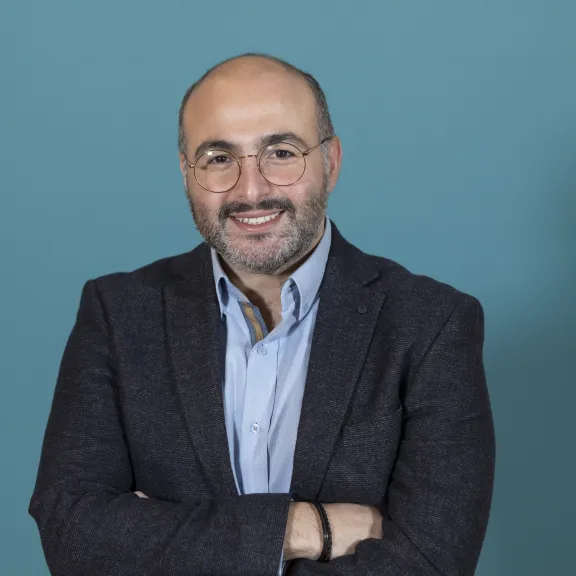Bernard Srour Combining blood markers and lifestyle to predict life expectancy
Bernard Srour, post-doctoral fellow, German Cancer Research Center in Heidelberg (DKFZ), under the supervision of Professor Rudolf Kaaks
- 2020 • Bettencourt Prize for Young Researchers

The 2020 Bettencourt Prize for Young Researchers was awarded to Bernard Srour, a post-doctoral student in epidemiology, for his research on the predictive factors of life expectancy.
Can lifestyle predict longevity?
Lifestyle factors include smoking, physical exercise, weight, alcohol consumption and diet. Since the beginning of his career, Bernard Srour has used his epidemiological expertise to study the links between all these factors and health hazards.
During his post-doctoral project in the cancer epidemiology department at the German Cancer Research Center in Heidelberg, Dr. Srour hopes to develop a model that would predict life expectancy based on a combination of blood markers and lifestyle. To do this, he will study the blood samples and data of nearly 8,000 people from the EPIC-Heidelberg cohort, a branch of the European multi-center EPIC cohort set up in the 1990s.
His findings might be used clinically to identify at-risk individuals and develop personalized prevention strategies for them. His pioneering approach should contribute to a better definition of good "metabolic health" before the onset of chronic diseases, the incidence of which is soaring due to unhealthy lifestyles.
"Forecasting life expectancy by observing our behavioral and eating habits is no longer a pipe dream." Bernard Srour
Bernard Srour in a few words
Bernard Srour is a pharmacist who also holds a PhD in public health and epidemiology. He is the coordinator of the National Cancer Food Research Network (NACRe Network).
During his PhD research in the Nutritional Epidemiology research team (EREN, Inserm, INRAE, Cnam, Sorbonne Paris Nord) supervised by Dr. Mathilde Touvier, he demonstrated a link between processed foods and cancer, cardiovascular disease, type 2 diabetes and obesity. He worked on a sample of over 100,000 individuals from the NutriNet-Health cohort, monitoring them for 10 years while taking account of sociodemographic, medical, anthropometric and lifestyle factors, including diet.
He found that food processing, in addition to sugar, saturated fatty acids and salt, plays a major role in the development of chronic diseases. His findings sparked a debate on industrial food in France and led to the creation of a parliamentary commission on the regulation of ultra-processed foods and additives.
Dr. Srour has also provided expertise to the National Cancer Institute since 2018.
Bettencourt Prize for Young Researchers
Created in 1990, the Bettencourt Prize for Young Researchers is one of the first initiatives of the Fondation Bettencourt Schueller. Until 2021, this prize was awarded each year to 14 young doctors of science or doctors of medicine, to enable them to carry out their post-doctoral stay in the best foreign laboratories. 349 young researchers were distinguished. The prize endowment was €25,000.
All the award-winners